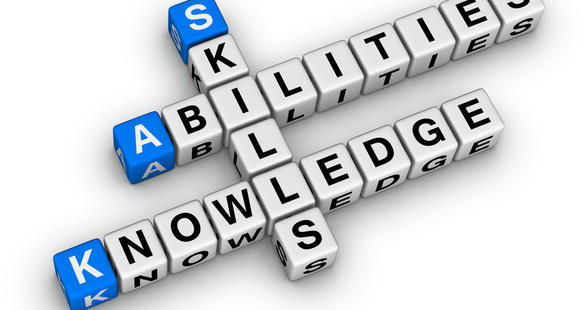In LSEN, we're quite excited at the moment about Open Badges as a means of promoting and strengthening informal and learner-led learning.

Open Badges are a way of accrediting learning, skills and achievements - both big and small. They also allow accreditation to be granted outside of traditional institutional pathways. Virtually any organisation or individual can issue a badge, about virtually anything.
Learners fulfil a set of learning criteria, set by the badge issuer, in order to earn a badge. This badge is then available to the learner to display on their CV, website, social media profiles (Facebook, Twitter, LinkedIn), or wherever else would be useful to them. Each badge contains code or metadata that is 'baked in' to the badge - meaning that an employer or educational institution (for example) can see what skills/knowledge the learner has acquired through earning that particular badge (and, where appropriate, a portfolio of the work the learner has done to earn it). Badges can be independent from one another, or linked with other badges as part of a learning journey or pathway.
So, basically, a badge is a way of breaking down learning into chunks, recognising that learning in a piece of credit, and enabling the learner to show that credit to whomever they like - friends, employers, educational institutions, etc. This may sound like any other form of accreditation - like a degree or certificate - the key difference being the decentralised, informal, and, unsurprisingly, 'open' nature of the open badge system.
Recently, Walt and I participated in a session in Madlab about Open Badges. The event was very interesting - with presentations and activities led by Doug Belshaw, the UK lead for Mozilla Open Badges, and Tim Riches of DigitalMe, who has been creating a series of badges for young learners. It was a well-attended event, with a range of people interested in open badges and what they offer learners, educators and institutions. Doug's presentation set the tone for learner-centred nature of badges: "Learning today happens everywhere. But it's often difficult to get recognition for skills and achievements that happen online or out of school. Mozilla Open Badges helps solve that problem, making it easy for any organisation to issue, manage and display digital badges across the web."
By way of background, Mozilla (the organisation behind Firefox and other open source applications) are providing the infrastructure for badges to be hosted and shared. They have created what they call an Open Badge Infrastructure (OBI), allowing for the creation of an 'ecosystem' of badges (and, potentially, other forms of credit). The OBI "is designed to support a broad range of different badge issuers, and allow any user to earn badges across different issuers, web sites and experiences, then combine them into a single collection tied to their identity."
(And one more cut-and-paste from Mozilla's wiki), Open badges are trying to enable a number of things:
- Create an alternative accreditation / credentialing system (even micro-accreditation / micro-credentialing system)
- Avoid silos; i.e. badges/certification stuck in one learning system
- Accredit both ‘hard’ and ‘soft’ skills
- Support learners learning everywhere
There are both strengths and limitations of the open badging model. For a start, there is no inherent marker of the 'quality' of a badge - each badge has its own set of criteria for how a learner would earn that badge. This could be seen as a weakness - but, of course, it could also be seen as a strength, allowing for complete flexibility within a learning journey. Also, any organisation or community can issue a badge, meaning that learning outcomes/pathways can be specified to a particular organisation's designs - which, again, can be both a strength and a weakness. Badges can also link to the learner's portfolio of work - meaning that their work is traceable and visible - but this could place a burden on employers, or whoever, to go through a learner's portfolio, when they may just want to have an indication of competence that would be traditionally 'embedded' in, say, a degree.
There are also challenges for the badge issuer, as we found at the recent session. Doug Belshaw outlined that, at the conceptual stage, many badges are conceived as overly broad - whereas badges often work best when they are focused and granular (meaning that many badges can be pieced together, rather than be undertaken as one big endeavour). We designed and made several badges at that session - and it was both fun and challenging to get the right scope for a badge, and to identify the applicable skills. (There are also some technical challenges that a badge issuer will need to figure out - though there are comprehensive tutorials out there - see our wiki below for details.)
We're keen to explore how badges might be used to invigorate and promote informal learning opportunities across the city - in communities, workplaces, institutions, and peer-to-peer networks. We'll be discussing badges at our upcoming meeting of the community learning strategy group in Gorton Monastery on 29th January - event details here. There will also be a regular meetup in Madlab for people interested in badges - the first date is 12th February, 3-5pm.
You can see some of the work we're doing about badges on LSEN's Manchester Community Learning wiki: http://manchestercommunitylearning.wikispaces.com/Open+Badges
You can find also find out more about badges through the following links:
http://openbadges.org/en-US/about.html
https://wiki.mozilla.org/Badges - Open badges on Mozilla wiki
http://openbadges.tumblr.com/ - Mozilla Open Badges blog
http://www.digitalme.co.uk/s2r-medals/ - DigitalMe's badges for young sports reporters (see also https://www.makewav.es/s2r)
http://badg.us/ - Make your own badges
See also this video introduction by Doug Belshaw: